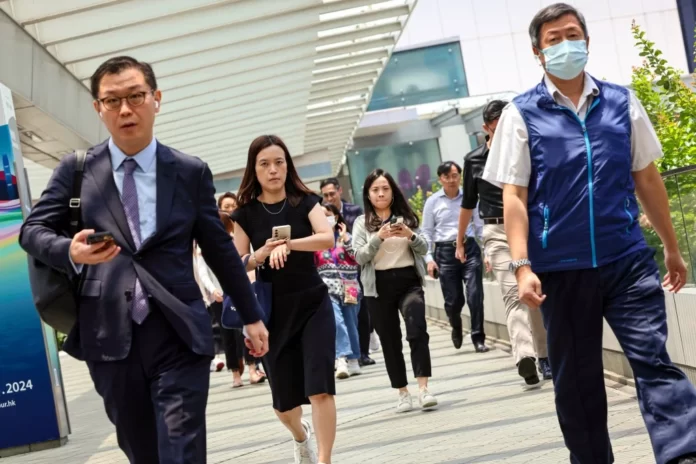Hong Kong will cut 10,000 civil service jobs and freeze salaries to reduce public spending and manage its deficit.
Financial Secretary Paul Chan announced the measures on Wednesday as part of the annual budget, stating they are necessary to restore fiscal balance amid global economic uncertainty, geopolitical tensions, and a weak property market.
The job cuts will take place by April 2027, reducing the civil service workforce by 2% each year for the next two years. Public expenditure will be reduced by 7% by the fiscal year ending March 31, 2028.
Chan said the plan provides a clear pathway toward fiscal balance. He said the spending cut would lay a sustainable fiscal foundation after a decline in land sales revenue pushed the deficit to HK$87.2 billion, nearly double the previous forecast of HK$48.1 billion.
Hong Kong will allocate HK$1 billion to establish an AI research and development institute. Chan said Hong Kong will leverage its position as an international platform to expand AI development.
The Hang Seng Index rose 3%, while the property and tech sub-indices increased over 3% and 4%, respectively.
Hong Kong’s economy remains exposed to external risks, including China’s slowdown and tensions between China and the United States. The government expects GDP growth between 2% and 3% in 2025, compared with 2.5% in 2024 and 3.2% in 2023.
Earlier this year, the United States imposed additional tariffs of 10% on goods from China and Hong Kong. The Hong Kong government criticized the move, saying Washington ignored the city’s status as a separate customs territory.
China imposed a national security law on Hong Kong in 2020. Following this, the city lost its special trading status, and several officials, including current leader John Lee, were sanctioned.
Hong Kong’s finances have been impacted by declining land premium revenues. These fees, which developers pay for land use, previously accounted for more than 20% of government income but now contribute around 5%.
Home prices have dropped nearly 30% over the past three years. High financing costs and an oversupply of properties have affected real estate investment.
The government will not put any commercial sites on sale this year due to high office vacancy rates and excess supply. Some commercial sites may be rezoned for residential use.
Hong Kong’s fiscal reserves are now at HK$647.3 billion, down from HK$734.6 billion at the end of March 2024. The government will continue implementing spending controls as it navigates economic and geopolitical conditions.




